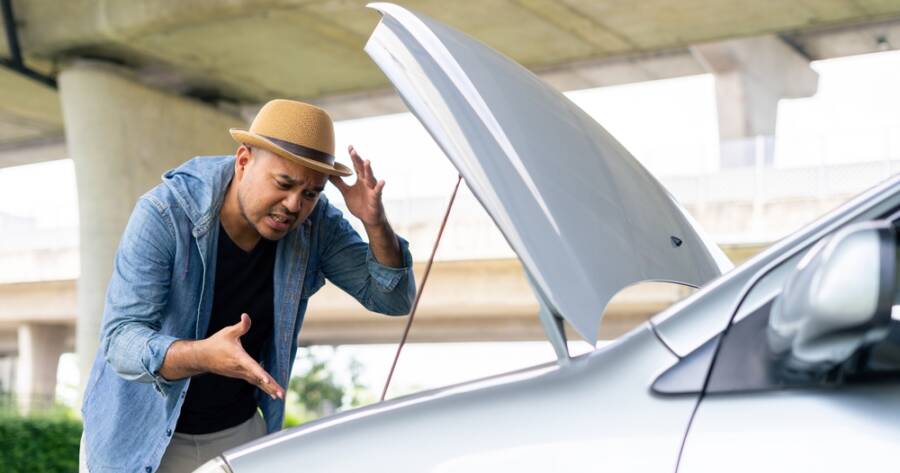Cars have a way of speaking up when something isn’t right. Whether it’s a subtle rattle or a piercing squeal, strange noises are your vehicle’s way of telling you something needs attention. Ignoring these sounds can lead to more significant problems down the road or even dangerous situations. Learning to recognize unusual car noises and knowing what they might mean can help you address issues early and keep your ride running smoothly.
Squealing When You Brake: Worn Brake Pads or Rotors
A high-pitched squealing sound when you hit the brakes is often a sign that your brake pads are wearing thin. Many brake pads are designed with wear indicators that create this sound to alert you before the pads wear down completely. Left unaddressed, worn brake pads can damage the rotors, leading to expensive repairs. The noise might start as an occasional squeak but can become a consistent squeal as the pads wear out.
If you hear grinding when you brake, the situation is more serious. This usually means that the pads have worn down entirely, and metal is rubbing against metal. Driving with grinding brakes is not only unsafe but can cause extensive damage to your braking system. When you hear squealing or grinding, it’s time to see a mechanic for a brake inspection and possible replacement.
Rattling Under the Hood: Loose Components or Engine Issues
A persistent rattle from under the hood could indicate a range of problems, from loose engine components to a failing catalytic converter. If the noise seems to come from the engine itself, it might signal low oil levels or issues with the timing chain. Check your oil dipstick to ensure proper levels, as driving with low oil can lead to severe engine damage.
Sometimes, the rattle is due to loose or broken components, like a loose heat shield or exhaust system part. If you notice the sound when driving over bumps or rough terrain, it’s likely a component that has come loose. Ignoring this noise can cause parts to fall off entirely or cause secondary damage, so it’s worth having a professional take a look.
Knocking or Pinging from the Engine: Fuel Issues or Engine Knock
If you hear a knocking or pinging noise from the engine, it could indicate that the fuel mixture is detonating improperly. This is often related to using the wrong octane fuel for your vehicle or having carbon buildup in the combustion chamber. In some cases, a faulty spark plug can also cause knocking, as it fails to ignite the air-fuel mixture correctly.
Driving with engine knock can reduce performance and increase wear on engine components. In more severe cases, it can damage pistons and cylinder walls. Addressing this sound promptly by checking your fuel type, inspecting spark plugs, and using fuel system cleaners can prevent costly repairs and prolong engine life.
Humming or Whining from the Transmission: Fluid or Gear Problems
A humming or whining noise coming from your transmission can indicate low transmission fluid, which can lead to overheating and gear slippage. Automatic transmissions often develop a whining sound when the fluid is old or contaminated. Check your transmission fluid level and color (it should be pinkish and clear). If it’s brown or smells burnt, it’s time for a change.
Manual transmissions may produce a grinding noise when shifting gears, indicating worn-out clutch components or transmission bearings. Neglecting this issue can cause gears to fail entirely, leaving you stranded. If your car is humming or whining during acceleration, schedule a transmission inspection to diagnose the problem before it escalates.
Clicking or Popping During Turns: CV Joint or Suspension Trouble
Hearing clicking or popping sounds when you turn the steering wheel often points to worn-out constant velocity (CV) joints, which connect the transmission to the wheels. The joints have protective boots filled with grease, and if these boots crack or tear, dirt can enter, causing joint failure. Left untreated, a damaged CV joint can break completely, making your car undrivable.
Another cause of popping noises might be issues with the suspension or steering components, such as worn ball joints or tie rods. If you hear this noise when making sharp turns or while parking, it’s crucial to have your suspension checked. Continuing to drive with faulty suspension parts can affect handling and increase the risk of accidents.
Roaring Exhaust: Leaks or Damaged Muffler
If your car suddenly sounds like a race car, the exhaust system might be leaking. This often happens when the muffler or exhaust pipe develops holes or cracks due to rust or impact damage. Exhaust leaks not only make your car loud but can also allow harmful fumes to enter the cabin, posing a health risk.
A faulty muffler or exhaust manifold can also decrease engine efficiency and increase emissions. Repairing an exhaust leak early prevents potential fines for noise violations and helps maintain fuel efficiency. If you notice roaring or excessive noise from your exhaust, get it inspected and repaired promptly.
Don’t Ignore the Warning Signs
Your car’s unusual sounds are its way of telling you something isn’t right. Paying attention to these noises and getting them checked out promptly can save you from more extensive (and expensive) repairs later.
Whether it’s a squealing brake pad, a rattling engine part, or a humming transmission, taking quick action helps maintain safety and prolongs your car’s life. A little vigilance goes a long way when it comes to keeping your ride in top shape.

